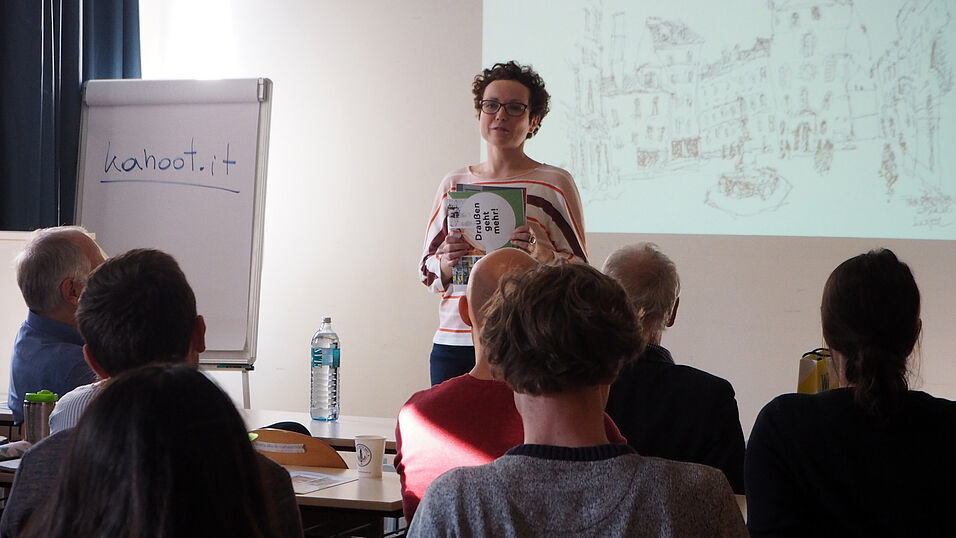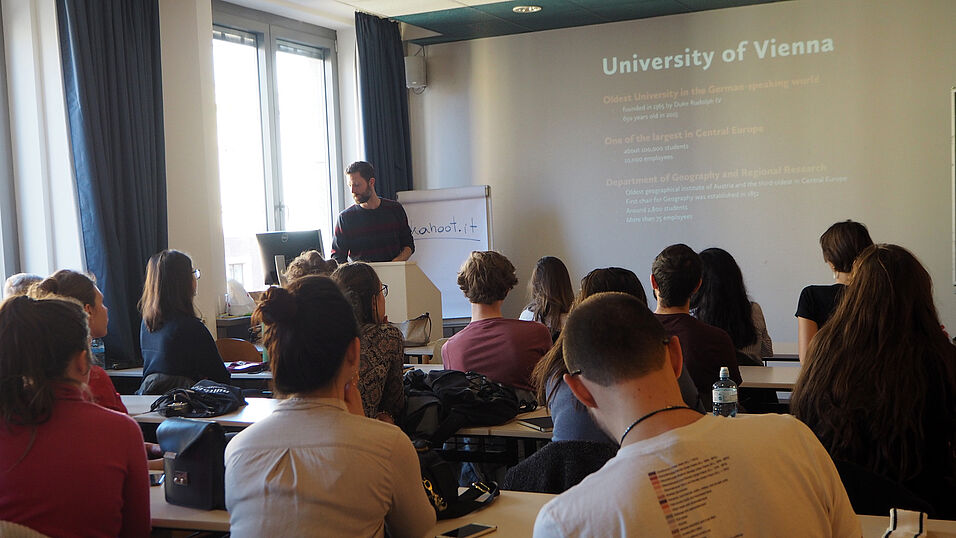„Wir freuen uns sehr, dass wir mit dem Erasmus Joint Master 4CITIES die interdisziplinäre Breite unseres Instituts einbringen können. 4CITIES vergleicht Stadtveränderungsprozesse nicht nur wissenschaftlich, sondern bringt den Städtevergleich auch curricular ‚zum Leben‘“, erklärt Yvonne Franz, die nationale Koordinatorin EMJMD Urban Studies (4CITIES).
Die Studierenden verbringen ihre Masterausbildung an sechs Universitäten in Brüssel, Wien, Madrid und Kopenhagen. „Durch diesen Austausch profitieren auch wir als Lehrbeauftrage und WissenschafterInnen – uns gelingt damit der Wissenstransfer zwischen verschiedenen Generationen an StadtforscherInnen und zwischen unterschiedlichen Institutionen“, so die Stadtgeographin vom Institut für Geographie und Regionalforschung der Universität Wien.
Einblicke in die Stadtplanung
Der Kick Off des 4CITIES Semesters in Wien bot dabei auch einen ersten Einblick in die Planungsgeschichte aktueller Herausforderungen der Stadt Wien. Die Studierenden folgten zwei interessanten Vorträgen zur Stadtentwicklung in Wien: Barbara Slotta von der Magistratsabteilung 18 der Stadt Wien sowie Florian Lorenz & Beatrice Stude (Forum Öffentlicher Raum) sprachen zu “Planning & Public Space in Vienna”; Johannes Suiter von der TU Wien zum Thema “From Engineering to Management: Vienna’s Historic Planning Imaginaries in a Nutshell”.
- 4CITIES ist ein internationaler, interdisziplinärer, immersiver Masterstudiengang in Stadtwissenschaften. Unterstützt von Erasmus Mundus, ist seine Perspektive europäisch und sein Kontext global. Die Studierenden lernen, die Stadt zu sehen, sie zu hören, zu verstehen, sich mit ihr zu beschäftigen und ihre Rolle bei der Gestaltung zu wählen.



